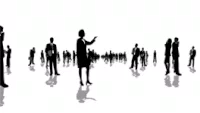Regardless of which side of the table you are sitting at in an interview process, you can expect some standard question, such as:
- Tell me a little bit about yourself.
- What are your three biggest strengths and how do you bring those to the workplace?
- Where do you see yourself five years from now?
Even though the interview process has changed through the years, these questions remain a part of it. However, interviewers are adding more and more emotional intelligence pieces into the interview equation. To help you prepare for an interview, I have listed four powerful questions that must be asked if you want to find a good fit for the job role. Equally, if you are looking for a new job, these are questions you can anticipate and prepare to answer as more and more employers are using them.

1. Tell me about someone with whom you work on a regular basis that you find difficult to get along with. What have you done to build a stronger relationship and what was the result?
This will take out a personal response to conflict since they need to describe someone they are not getting along with. This will depend on their personality type according to the DISC method (you can find out more about the way each style responds to conflict HERE).
To build a stronger relationship with someone a person needs to have self-awareness. Lacking it will leave them with no skillset to draw from to make a not-so-perfect relationship better on a daily basis. It is also good to notice that in terms of the results of trying to fix the relationship, anything is possible. That includes a person leaving the company just because of one colleague or boss they find difficult to get along with. If I had a nickel for every time on my speaking engagements I have heard: “People leave managers, not companies” …
2. Tell me about a time when you rejected one of your team members ideas or opinions about a project.
This is a question that is more for outgoing styles because they typically don’t hesitate when they have something to say. If you are talking to a D personality style, you can expect that they said whatever was on their mind, since they just let those kinds of things out. I personality style typically share quite a bit and get their energy from being around people, so they also don’t have an issue with speaking their mind.
However, S and C personality styles don’t like to share their thoughts and feelings, especially in public since they are the reserved kind. What you can expect from them even in the future in situations like this is to stand on the sidelines and take notes, and then react privately. In an anonymous email if possible.
3. Describe a time when someone treated you unfairly. What did you do?
Unfairness is a common thing that appears in society these days and people often feel that they are treated unfairly. If a High D feels that they are treated unfairly they will be very tactical and not allow personal feelings to get into a conversation. On the other hand, you can expect a High I to be emotional and talk to the person who made them feel a certain way to get to the bottom of the situation.
On the other side of the spectrum, a high S will internalize the situation and not do anything publicly. They will wait and maybe talk to a supervisor, but for the most part, they will just hold their emotions inside. So, if you want to know how a High S is feeling, you must talk to them privately and one-on-one. Lastly, a high C will be very calm and calculated and know the time and the place to say that they are feeling unfair. Most probably they will approach the person that makes them feel that way and talk to them openly.
4. How do you know we will be a culture fit for you? What traits you have that match those of current employees? What is different about you or what skill set you have that can better our company in the process of attaining our goals?
Personality style that will put culture in the first place is definitely a high S. These people want to feel as if they are a part of something bigger than themselves and/or a part of a family. Unlike them, D and S personality styles can work independently and don’t require much interaction with other people daily, so they won’t be concerned about the culture, but rather about achieving their own goals.
Talking about traits that match those of current employees will require a bit of research. This is where C personality styles will thrive since they love a ton of research, especially from a standpoint of employee satisfaction. D personality styles will look for potential award winners among the employees because they want to be a part of that kind of culture. Unlike them, I personality styles look for fun in the culture of a company and question will they enjoy being in it daily. Looking for a more family atmosphere and a way to individually contribute to the higher good is something you can expect from a high S. But don’t expect them or a high C to talk much about what are they bringing to the table. They have written it down in a CV and they don’t like to talk much more about their achievements. However, a D personality style will be super happy to tell you about the things they do well so even from that standpoint you can figure out who is what personality style.

Why are these questions important?
When we are interviewing people, we need to anticipate these responses so that we can recognize the personality style of a person we are talking to and tailor the rest of the questions. It is important to keep in mind what position are we interviewing the person for because otherwise, we won’t know how to use this information. What we want from a person is to gain the energy from a role they will be working on, not lose it. Because that can help them overcome the challenges that they have to deal with daily within that role. If you do your benchmarking properly, the person you are interviewing will feel as if the job role was made for them. That will make them feel fulfilled by the role and they will do their best and be super successful.
Using DISC in the workplace can do wonders for your company, as it has for these people HERE. Understand your people and unlock their true potential by joining one of my courses HERE.







